In the concluding piece of the two-part series on art in the city, Soma Das speaks to collectors, online retailers and gallery owners to gauge the rising interest in art among the masses
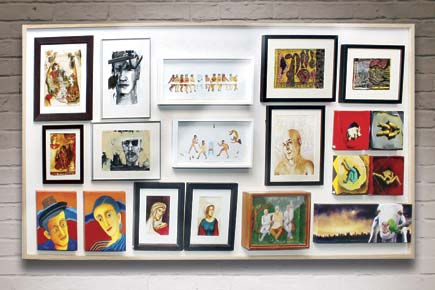
For Worli-based freelance art director Rishita Chandra (38), art has always been her first love. Tao Art Gallery owner Kalpana Shah remembers how she visited the gallery as a single girl; then would drop by with her husband and now visits with her baby in tow.
ADVERTISEMENT
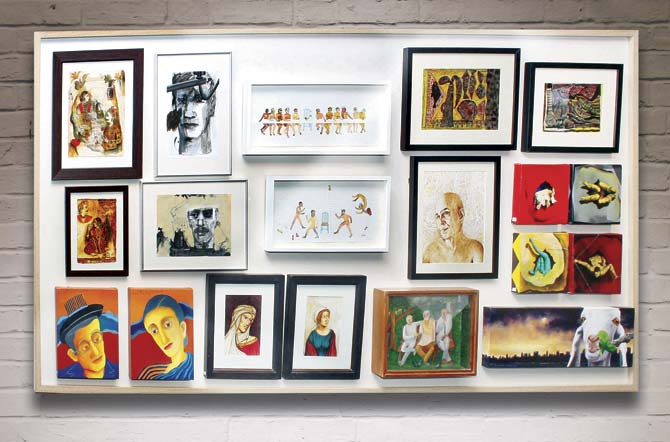
Artworks that were part of the Small is Beautiful exhibition held at Tao Art Gallery
Chandra’s interest in art grew over the past eight years, especially post her marriage. “My husband and I would visit galleries where I would meet artists. When I had a certain amount of disposable income, art was the first choice,” shares Chandra, whose favourites are artworks by Rini Dhumal, Sri Lankan artist Senaka Senanayake, and Sunil Padwal, among others.
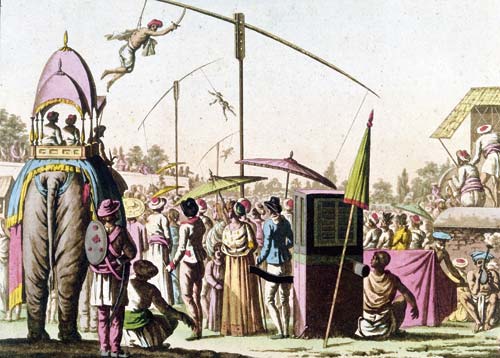
The Swinging Festival, a print from the exhibition, Hindoostan Revisited
“The Indian market is growing and there’s lots to look forward to,” she emphasises. Chandra is one of the many young art collectors who are upbeat about the art scenario and believe in investing and deriving pleasure from collecting art.
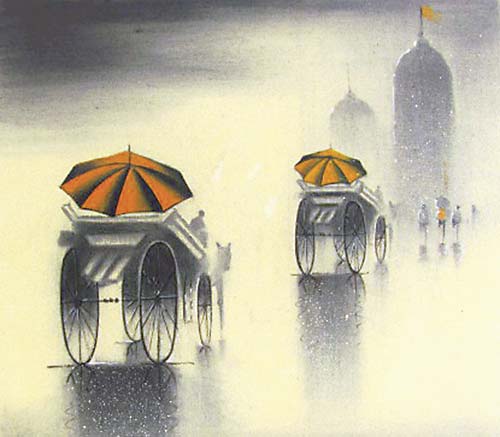
A painting available at ArtZolo.com
Open doors
With younger art collectors and the middle-class opting to buy art, art galleries and online portals are taking efforts to reach out. Kishore Singh, Head of Exhibitions and Publications, Delhi Art Gallery (DAG), mentions that their archives include relatively inexpensive artworks as well ('50,000 upwards).
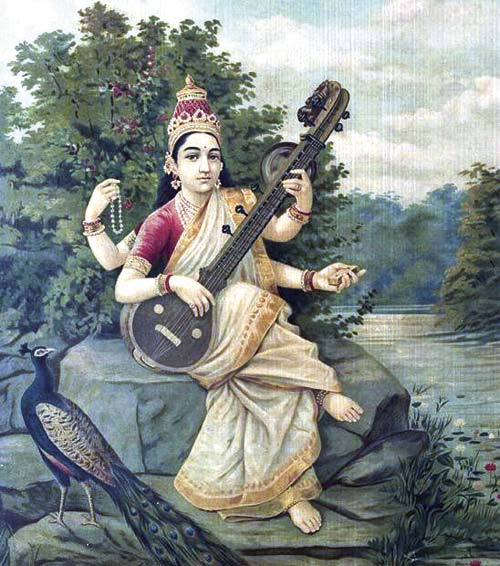
An artwork from Saffronart.com
“The middle classes are important as opinion makers. DAG has been conducting outreach to different groups to increase sales and raise awareness among varied groups of people about Indian modern art,” he explains. For those looking to collect art, Singh advises that they invest in original prints, which appreciate in value.
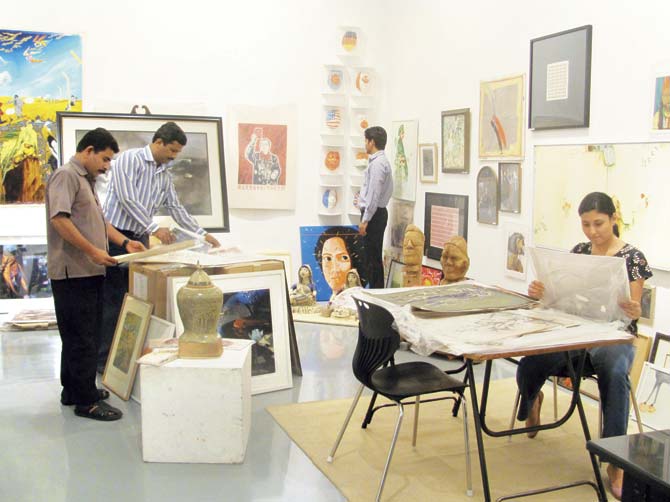
Easy Buy exhibition at Sakshi Gallery
“The other option is to look at drawings rather than paintings. These are reasonably priced and the stepping stone to a passionate affair with art,” he observes. Geetha Mehra, director, Sakshi Gallery, mentions that every few years, they host an Easy Buy show (prices start at '500), which consists of low-value works of emerging artists as well as smaller works by established ones.
“The middle class is becoming an important player in the art market. There is more disposable income and a desire for the finer things in life. They opt for emerging artists or for editioned works of the more prominent ones,” she shares.
Affordable art
For art lovers on a budget, she suggests buying editioned works: “A number of mid-career artists are making editioned photo-based works that are affordable. Make sure you don’t buy a work that you might get tired of in a few months.” At Tao Art Gallery, Shah, who is also a collector, hosted three editions of the Small is Beautiful show which brought together small-sized works by artists.
“Years ago, when I visited The Phillips Collection, Washington DC, I was fascinated by the postcard-sized artworks that I spotted there. I thought that such works are great because collectors often have a space constraint,” she states. Interestingly, an edition of the exhibition took place during the recession period.
“The keyword became ‘affordable’ as they were sensible investments. It was not a big risk spending '15,000 for art,” adds Shah, whose collection includes a 5”x3” artwork by a young artist, which gets noticed even among works by masters.
Shah gauges how things have changed today, “Art is for everybody. MF Husain wanted to reach out to the carpenter and the collector, and that’s why he made a film. Similarly, artist Raja Ravi Varma made art popular through posters,” observes Shah.
Prints matter too
Art historian and entrepreneur Dilnavaz Mehta organises Hindoostan Revisited, an exhibition held once in two years, offering original prints. Mehta speaks of this market: “Prints and lithographs are at a nascent stage.
I wanted to give people a chance to buy affordable ones.” At the exhibition, prints are priced '1,500 upwards and Mehta adds that they see buyers ranging from students to people hunting for gifts. “When students drop by, we explain the artworks to them,” she observes.
The online route
Launched in January 2014, ArtZolo.com is a site that helps people own affordable art and allows artists to sell their works directly. Co-founder Vishal Singhal says, “85% of our buyer base is young individuals. With the growing middle classes and a need to make their spaces unique, there is a growing demand for art.” On the site, the artist controls the pricing.
“We advise when asked for, ensure authentication of artworks and check on the artworks. With a rising middle class, such products will see significant growth,” comments Singhal. Dinesh Vazirani, co-founder of Saffronart.com, mentions that they launched StoryLTD, an auction and e-commerce website for art, collectibles and design (in 2013) to reach out to a wider base of buyers.
“Many auctions on it are in the “no-reserve” format, which is attractive to new collectors. In a regular auction, all lots have a reserve or minimum price below which the object will not sell. With no-reserve auctions, there is no minimum price and the highest bid is the winning bid, no matter what the value is,” he states.
Power to the middle class
Vazirani adds that there is a rising interest among middle classes but there is a long way to go. “It is too early to say that they are becoming an important player. In the coming months, we will introduce additional offerings to reach out to the middle class,” he observes.
He mentions that well-known artists, particularly iconic Modern artists, generate the most interest. “Though prints are far lower in price than originals, they are considered valuable, particularly when sold in limited editions. We promote younger artists and in many cases, one can purchase an original from these artists at a similar price as a print from a master.”
Physical and online sources have their pros and cons, he shares. “Online sites give the freedom to buy at your convenience. Some buyers do prefer to view an artwork before purchasing, particularly if they are not familiar with the style of the artist,” he summarises.
 Subscribe today by clicking the link and stay updated with the latest news!" Click here!
Subscribe today by clicking the link and stay updated with the latest news!" Click here!







